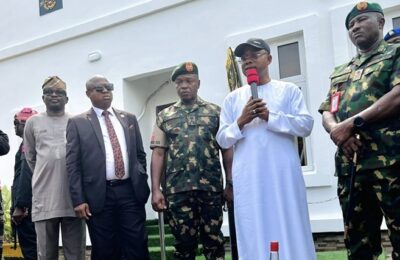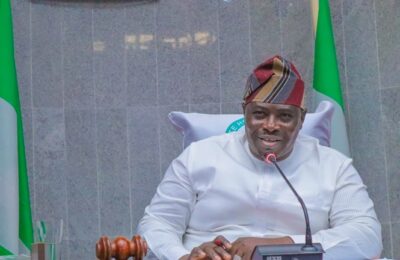The tide for Okura State is not without resistance—even from within. While Kogi East’s brightest minds continue to advocate for a state that centralizes Igala identity and addresses historical marginalization, dissenting voices have emerged across ethnic, political, and ideological lines. And not all are opposed to statehood itself—some simply argue for a broader, more inclusive formation: Okura-Apa State with Oturkpo as its capital, and 18 Local Government Areas spanning Igala, Idoma, and other minority regions of the old Benue Province.
An anonymous political veteran from Akure when contacted for comment, was blunt:
“Okura alone is a narrow tunnel. If you’re building for the future, build with a federation in mind. Okura-Apa is that federated dream.”
For these critics, the push for a strictly Igala‑centric Okura State seems parochial. They argue that the realities of Nigeria’s state-creation politics require coalitions, not isolation. A former House of Representatives member from Benue bluntly observed:
“If the map doesn’t extend to Otukpo, then the politics doesn’t cross the line either. Unity gives you votes, not vanity.”
This disagreement is not entirely new. During the 1981 National Constitutional Conference, the proposal for an Okura-Apa State was tabled as one of the strongest candidates for new state creation. According to the records from the conference proceedings (now archived at the National Archives, Enugu), the Okura-Apa model was applauded for its multi-ethnic vision, geographical balance, and economic viability.
But some within Kogi East view this broad coalition model as a dilution of identity.
“We are not against Igbirra, Idoma or Otukpo,” said Dr. Raymond Okene. “But if we continue watering down every proposal to please everyone, we’ll never have a state. The Igalas are large enough, strategic enough, and unified enough to stand alone.”
This sentiment was resounded by local youth leaders in Ankpa who believe adding Otukpo or old Benue elements to the statehood proposal may derail the current momentum.
“What happened to the North-Central unity when our roads were abandoned?” asked Comrade Yahaya Ademu. “Now that we seek equity, some remember unity?”
In reality, state creation in Nigeria has always involved compromises. From Akwa Ibom splitting from Cross River, to Nasarawa breaking from Plateau, many new states were birthed from debates, disagreements, and eventually—deals. As a constitutional lawyer, Barrister Moses Ujah, noted:
“There’s no state that emerged without scars. But we must be careful not to negotiate our way into irrelevance.”
Still, proponents of Okura-Apa State argue that this is not about identity compromise, but strategic alignment. By joining with the Idoma, the argument goes, Kogi East could form a powerful socio-political bloc with shared grievances under the umbrella of the old Benue Province.
“We were one province before Nigeria chopped us into uneven sizes,” said Chief Francis Obande, an elder statesman in Otukpo. “Maybe this is the time to reunite our broken map.”
But this idea does not sit well with all. In Idah, some traditional leaders argue that the time for geographic experimentation is over.
“We cannot keep redrawing the map every 30 years,” one Igala chief, who requested anonymity, told me. “If Otukpo wants a state, let them fight for it. Okura is our ancestral right.”
Such diverging narratives reveal the deeper philosophical divide between political pragmatism and identity preservation. One side wants expediency, the other demands authenticity.
Interestingly, a few middle-ground voices have begun to emerge.
Dr. H. Enejo, a political sociologist at the University of Jos, proposes a dual-track approach:
“Let the Okura State movement go ahead with its legal and civic strategies. But simultaneously, let there be a diplomatic channel open to Idoma and Apa leaders. If convergence is natural, it will happen. If not, both can pursue parallel but peaceful campaigns.”
Meanwhile, some elders caution against letting internal disagreement derail the broader objective. “This is not the time to quarrel about postal codes,” said Rev. Emmanuel Ejiga at a clergy conference in Lokoja. “We either rise with reason or fall with ego.”
Diaspora stakeholders are watching closely. A recent open letter from the Igala Global Thinkers Forum warned against what they called “premature compromise without internal consolidation.” The letter stated:
“A house divided cannot negotiate. Let Igala elders first unite, then dialogue with neighboring regions from a position of clarity, not confusion.”
Yet, voices from Benue continue to insist that any viable statehood from the old Middle Belt must acknowledge its shared historical terrain.
“Okura-Apa is not an imposition,” said Prof. Peter Ameh, a historian from Benue State University. “It’s a restoration.”
As the current constitution amendment window approaches, lobby groups are intensifying. While one camp rallies around Okura, the other continues to canvas for Okura-Apa — a convergence of cultures, LGAs, and perhaps visions.
But for now, the Igala intelligentsia is firm: the priority is to build a technically sound, legally valid, and morally persuasive argument for Okura. Whether Apa joins later remains secondary.
“If we fail to define our dream,” warned Dr. Grace Atayi from the U.K., “others will define it for us. And we may not like the shape it takes.”
In this complex mosaic of state creation, the real struggle may not be with Abuja, but within.
– Inah Boniface Ocholi writes from Ayah – Igalamela/Odolu LGA, Kogi state.
08152094428 (SMS Only)




